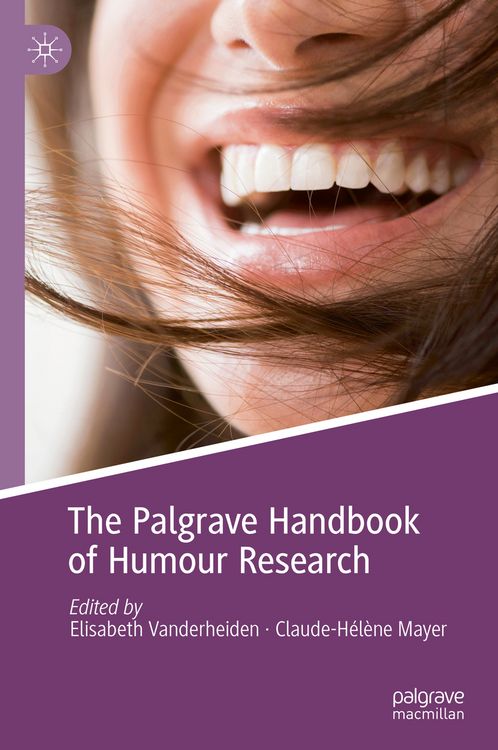The Palgrave Handbook of Humour Research
-
- Hardcover ausgewählt
- Taschenbuch
- eBook
-
Sprache:Englisch
231,99 €
UVP
267,49 €
inkl. MwSt,
Lieferung nach Hause
Beschreibung
Details
Einband
Gebundene Ausgabe
Erscheinungsdatum
01.06.2024
Herausgeber
Elisabeth Vanderheiden + weitereVerlag
SpringerSeitenzahl
663
Maße (L/B/H)
24,1/16/4,4 cm
Gewicht
1158 g
Auflage
Second Edition 2024
Sprache
Englisch
ISBN
978-3-031-52287-1
This handbook is the updated and expanded second edition of a highly cited and impactful collection, which provides new perspectives on humour from transdisciplinary perspectives. The collection’s focus is on humour as a resource from different socio-cultural and psychological viewpoints, bringing together authors from different cultures, social contexts and countries. The handbook enables researchers and practitioners to unlock research findings which give new directions for contemporary and future humour research.
By employing transdisciplinary and transcultural perspectives, the volume further discusses humour in regard to different cultural and political contexts, humour over the lifespan, in therapy and counselling, in pedagogical settings, in medicine and the workspace. The contributions also highlight the connections between humour and the COVID-19 pandemic and promise new inspiring insights. This second edition includes a new introduction from the editors, updates to the majority of the chapters, and five new chapters which take a humour-research approach to contemporary issues such as the Russian-Ukrainian crisis, the consequences of the pandemic, and tackles developments related to artificial intelligence and gamification. With an expanded scope, this handbook will continue to appeal to researchers, practitioners and students in the fields of industrial and organisational psychology, positive psychology, organisational studies, future studies, health and occupational science and therapy, who will find each chapter highly topical, insightful and applicable to practice.
Unsere Kundinnen und Kunden meinen
Verfassen Sie die erste Bewertung zu diesem Artikel
Helfen Sie anderen Kund*innen durch Ihre Meinung
Kurze Frage zu unserer Seite
Vielen Dank für dein Feedback
Wir nutzen dein Feedback, um unsere Produktseiten zu verbessern. Bitte habe Verständnis, dass wir dir keine Rückmeldung geben können. Falls du Kontakt mit uns aufnehmen möchtest, kannst du dich aber gerne an unseren Kund*innenservice wenden.
zum Kundenservice
